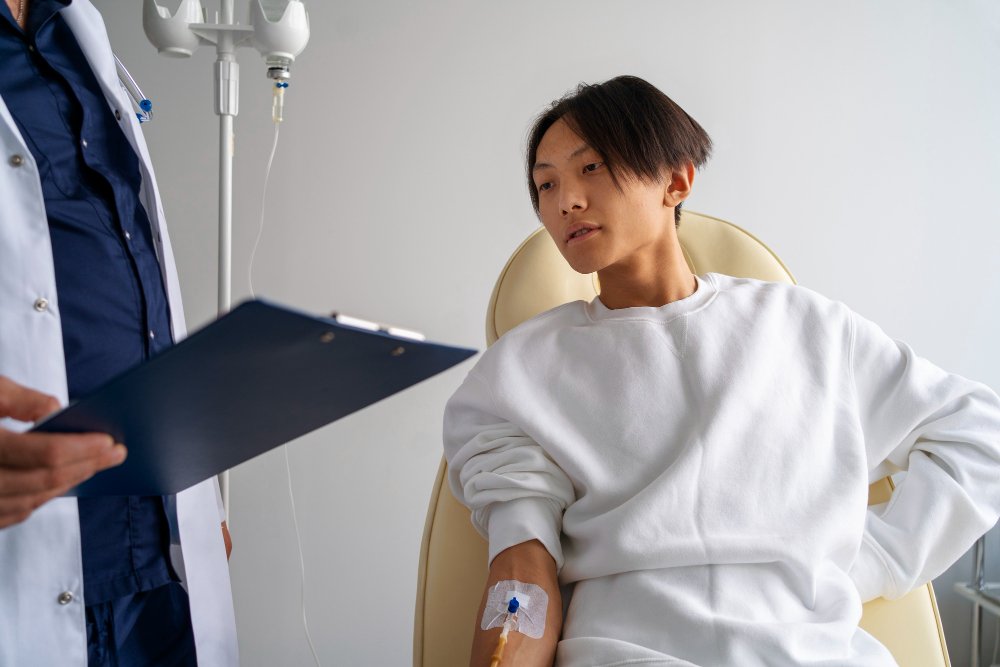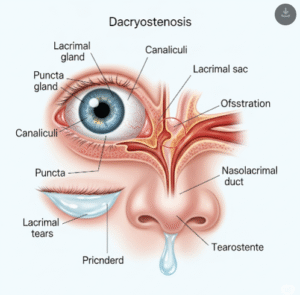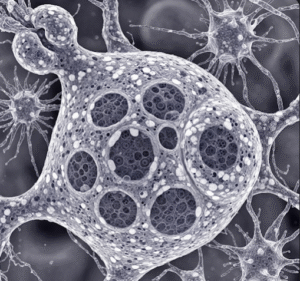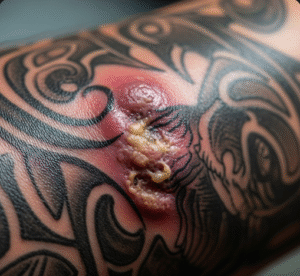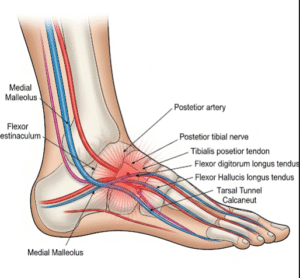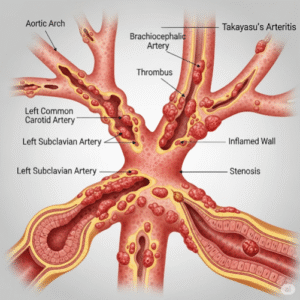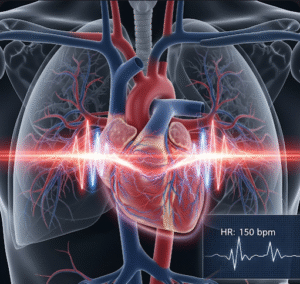Overview
Autoimmune Polyglandular Syndrome (APS) is a rare group of disorders characterized by the immune system attacking multiple endocrine glands, leading to their dysfunction. APS causes a combination of hormone deficiencies and autoimmune conditions, often requiring lifelong management. Early diagnosis is important to prevent serious complications.
What is Autoimmune Polyglandular Syndrome?
APS involves the coexistence of at least two endocrine gland insufficiencies due to autoimmune destruction, commonly including the adrenal glands, thyroid, and pancreas. There are two main types: APS Type 1 (juvenile onset) and APS Type 2 (adult onset). The syndrome may also involve non-endocrine autoimmune diseases.
Symptoms
Symptoms vary depending on the glands affected but may include:
- Fatigue and weakness
- Low blood pressure and salt craving (adrenal insufficiency)
- Weight loss or gain
- Low blood sugar episodes
- Skin changes such as hyperpigmentation
- Hypothyroid or hyperthyroid symptoms (cold intolerance, weight changes, palpitations)
- Diabetes mellitus symptoms (increased thirst, urination)
- Digestive issues
Causes
APS results from an autoimmune attack on endocrine glands, often linked to genetic predisposition and environmental triggers. The immune system produces antibodies that target hormone-producing cells, causing glandular destruction.
Risk Factors
- Family history of autoimmune diseases
- Genetic mutations associated with APS (e.g., AIRE gene in Type 1)
- Other autoimmune disorders in the patient or family
Complications
- Addisonian crisis (life-threatening adrenal failure)
- Severe hormone imbalances
- Diabetes complications
- Increased risk of other autoimmune diseases
- Chronic fatigue and reduced quality of life
Prevention
- No known prevention due to autoimmune nature
- Early detection and treatment of endocrine insufficiencies
- Regular monitoring for development of additional autoimmune conditions
Treatment Options in Korea
South Korea provides expert endocrine and immunology care for APS, with comprehensive diagnostic and therapeutic approaches.
- Diagnosis
- Blood tests for hormone levels (cortisol, thyroid hormones, glucose, etc.)
- Autoantibody testing to identify autoimmune targets
- Genetic testing for APS Type 1
- Imaging studies of endocrine glands if needed
- Medication
- Hormone replacement therapies (glucocorticoids, thyroid hormone, insulin) tailored to affected glands
- Immunosuppressive therapies in some cases to control autoimmune activity
- Supportive treatments for symptom management
- Monitoring and Follow-Up
- Lifelong monitoring of hormone levels and organ function
- Screening for associated autoimmune diseases
- Patient education for crisis management (e.g., adrenal crisis)

